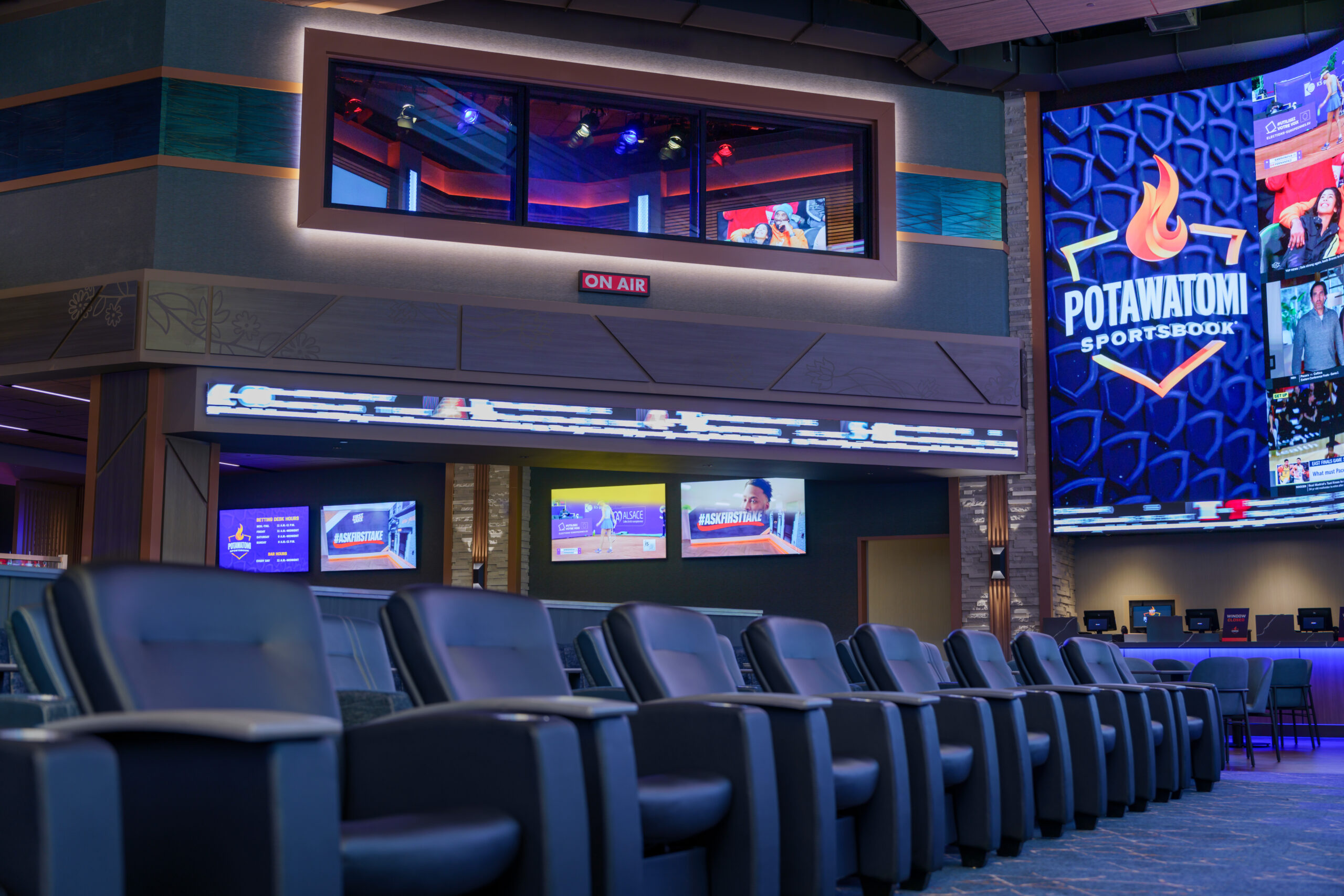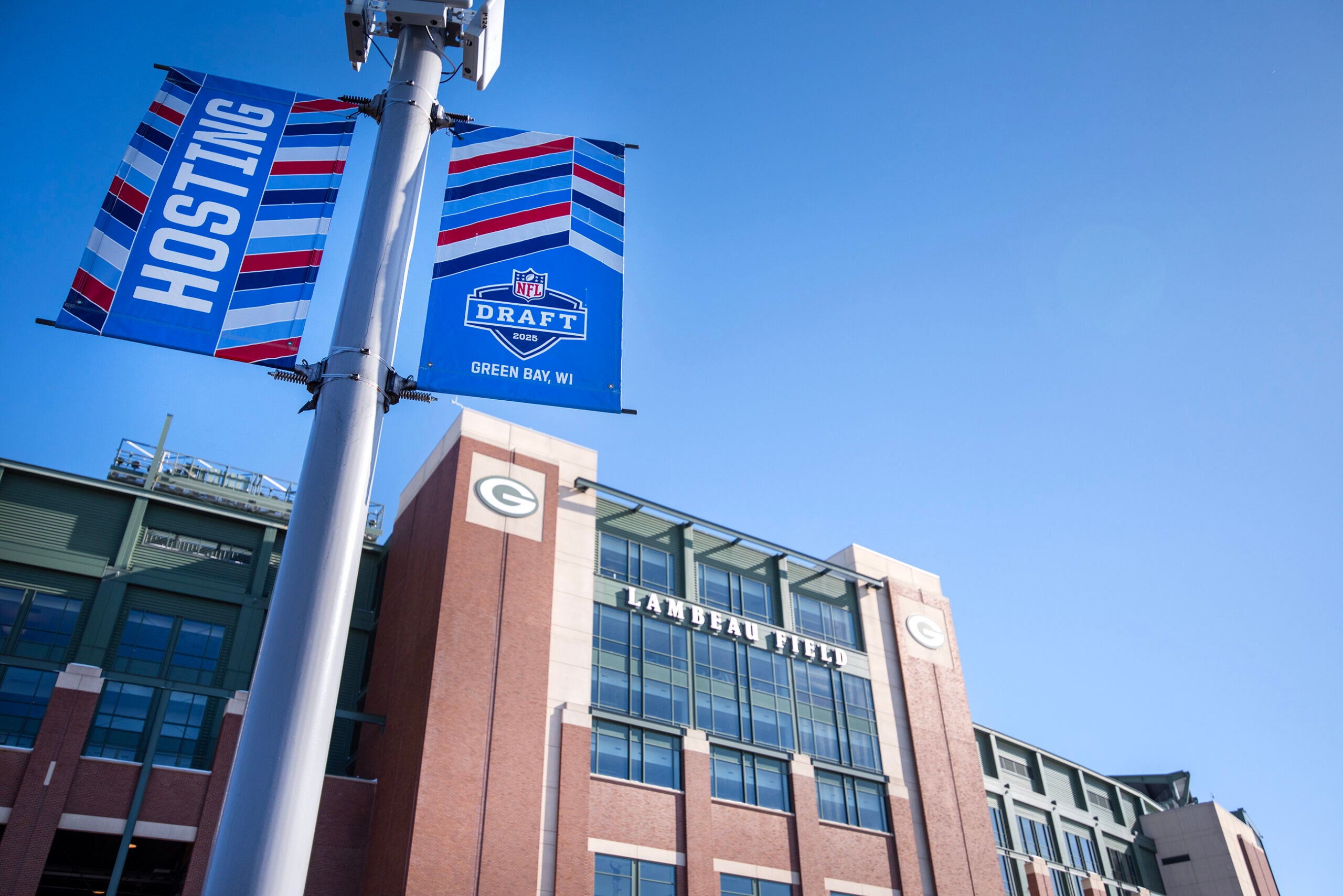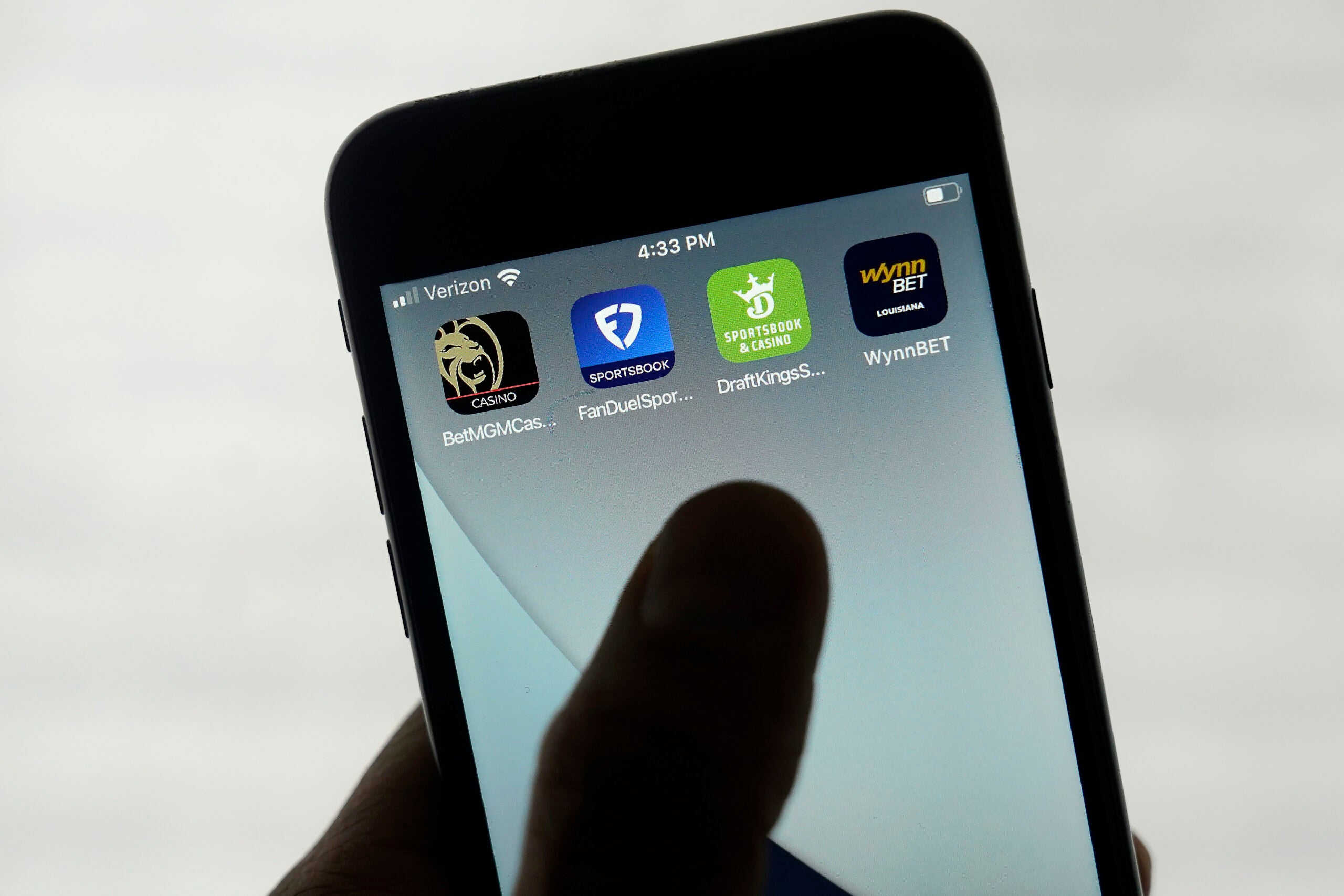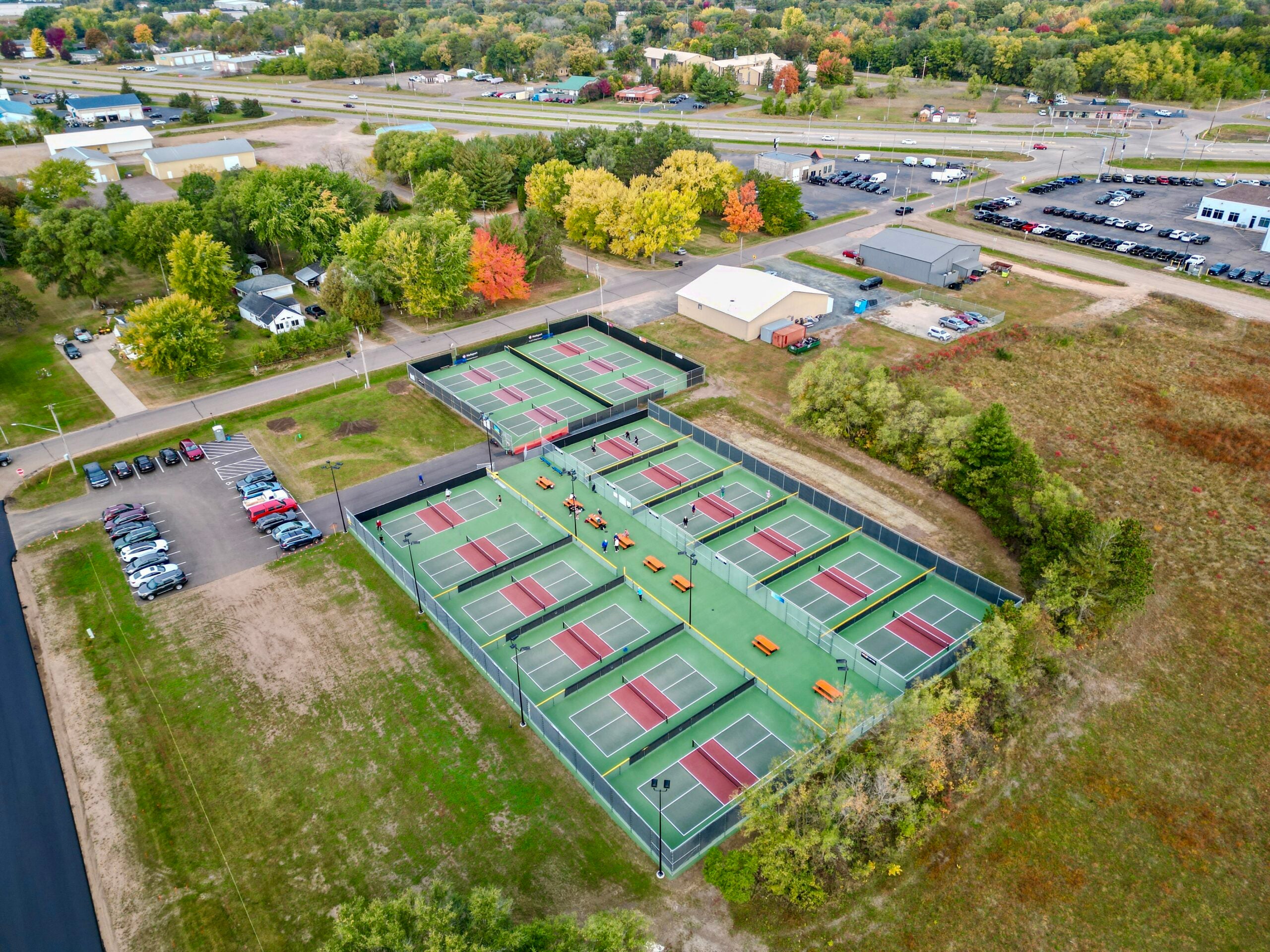The Potawatomi Casino Hotel in Milwaukee is planning a party for the first Super Bowl at its permanent sportsbook on Sunday.
The sportsbook will have multiple televisions showing the game, a tailgate buffet and close to 1,000 betting options, said Justin Arnett, vice president of digital gaming at Potawatomi Casino Hotel.
“The Super Bowl is the single-highest volume bet day of the sportsbook calendar,” Arnett said. “It’s such a traditional American thing, cultural thing, that it brings out a lot of people for the first time to get a bet on the game.”
Stay informed on the latest news
Sign up for WPR’s email newsletter.
The Potawatomi Sportsbook opened last year with over 20 kiosks, a restaurant, seating for more than 200 sports fans, a broadcast booth and a more than 2,000-square-foot LED screen. The casino previously opened a temporary sportsbook in 2023 while the permanent one was being built.
The Forest County Potawatomi is one of six federally recognized tribal nations in the state that had sports betting operations up and running in Wisconsin casinos as of late 2024, according to a new Wisconsin Policy Forum report.
While most states have legalized sports betting, Wisconsin has taken a cautious approach, only allowing sports gambling on tribal lands.
According to the report, the state could try to expand online sports betting to create additional tax revenues, but doing so could come with negative side effects.
In 2018, the U.S. Supreme Court struck down a federal law that effectively banned commercial sports betting in much of the country.
Following the ruling, many of Wisconsin’s tribal nations negotiated with the state to amend their compacts to allow sports gaming at their casinos, the report said.
Nine of the 11 federally recognized tribal nations in Wisconsin have amended their gaming compacts with the state to authorize sports betting as of the end of 2024, the report said.
The six tribal nations with active sports betting operations are the Oneida Nation, St. Croix Chippewa Indians of Wisconsin, Sokaogon Chippewa Community, Forest County Potawatomi, Lac Courte Oreilles Band and Lac du Flambeau Band, according to the report.

The state constitution prohibits most types of gambling in Wisconsin, with some exceptions including the state lottery. Most other forms of gambling are only allowed to be run by tribal nations.
Arnett, with the Potawatomi Casino, says the first year of the permanent sportsbook has been mostly successful. He said Milwaukee is a sports city, and the sportsbook continues to grow its bet volume. He said this NFL season was one of the worst for upsets in recent years, which ended up being good for customers because most people bet on favored teams.
“This year, they were winning at a higher clip than normal, which wasn’t quite as financially good for us but it brings people in the door,” he said. “People are coming in and they’re betting and they’re having a good time.”
Wisconsin’s tribal nations use a share of their net winnings from gaming operations to support services for tribal members and make annual payments to the state to reimburse it for regulating casinos, the policy forum report noted.
“The state is giving the tribes the exclusive right to conduct certain types of gaming operations, and essentially what the state is getting in return are these payments,” said Mark Sommerhauser, the report’s author and a spokesperson for the Wisconsin Policy Forum.
Tribal gaming payments were relatively flat prior to the COVID-19 pandemic, according to the report. But those payments rose to above pre-pandemic levels in 2022 to $57.6 million. In 2023, gaming payments rose to $65.9 million and then $66.3 million last year.
Meanwhile, gross revenues from sports betting nationally have increased by nearly tenfold over the last four years, from $352 million in the third quarter of 2020 to $3.24 billion in the same period last year, the report says.
That growth corresponded to an increase in revenues to states and local governments from sports gaming, the report found. States collectively have “collected hundreds of millions of dollars in tax revenues” since the rush to legalize sports betting.
“In most cases, at least a portion of that is going to sort of pay for the process of providing state regulation and oversight of the gaming operations. But in many cases, it goes well beyond that,” Sommerhauser said.
The report acknowledges there is “some amount of illegal sports betting” happening online in Wisconsin.
Some apps and websites, including those marketed as fantasy sports sites, do have gambling elements and are accessible in Wisconsin.

Wisconsin could try to expand online sports betting without amending its constitution by renegotiating gaming compacts to allow online gaming off-tribal lands if it goes through servers on tribal lands, the report noted. Florida made a similar deal with the Seminole Tribe, but it’s unclear what a deal in Wisconsin would look like, Sommerhauser said.
The report also says there are risks to expanding sports betting in Wisconsin. The policy forum cited a 2024 research paper that found states that legalized online sports gambling saw increased rates of bankruptcy, debt sent to collections and auto loan delinquencies.
“Several studies showed that Household finances in states where online sports betting has been legalized were negatively affected in the aggregate,” Sommerhauser said.
Wisconsin Council on Problem Gambling Executive Director Rose Blozinski said gambling addiction is already an issue in Wisconsin and there’s been an uptick in issues stemming from sports betting in recent years.
While most people can gamble for fun, she said, gambling addiction can lead to serious consequences.
“There’s a high suicide rate on people who have gone overboard on gambling, with problem pathological gamblers,” Blozinski said. “In addition to that, there’s usually a lot of financial issues. People can find themselves embroiled in legal issues.”
Wisconsin Public Radio, © Copyright 2025, Board of Regents of the University of Wisconsin System and Wisconsin Educational Communications Board.



